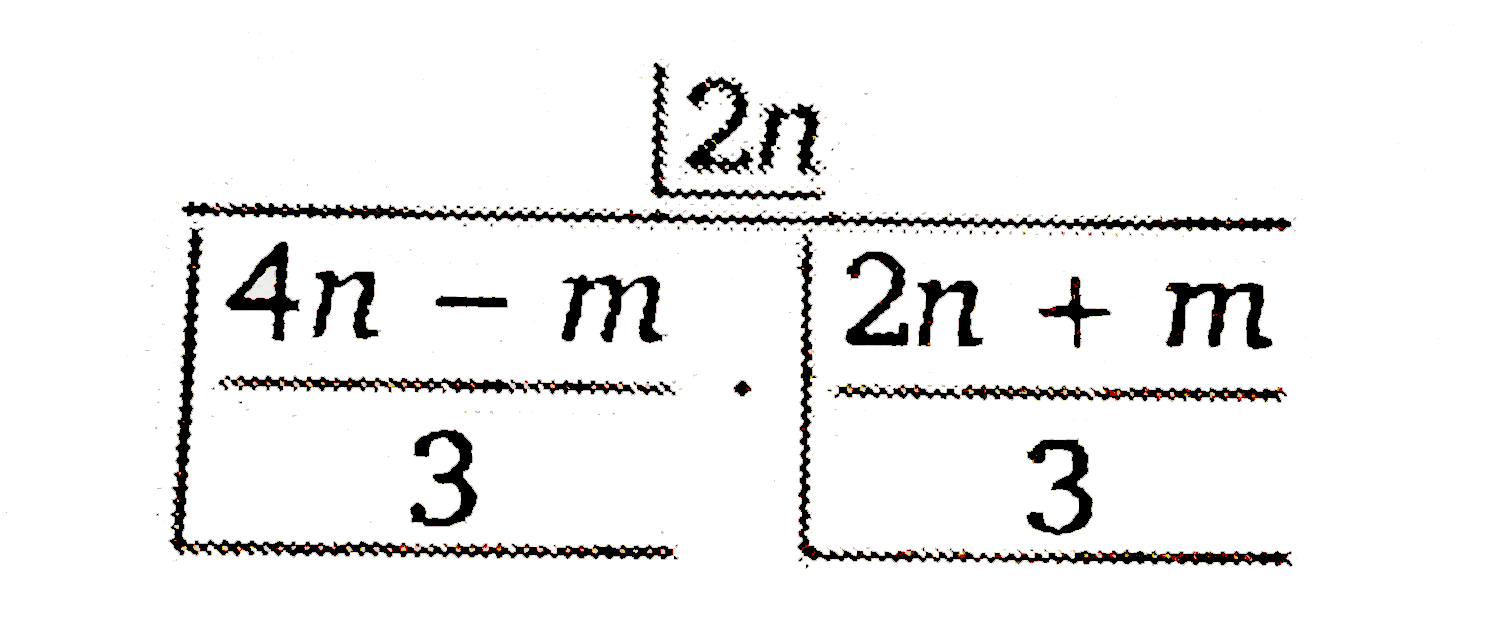If n be a positive integer and Pn denotes the product of the binomial coefficients in the expansion of (1+x)n, prove that Pn+1Pn=(n+1)nn!.
n+1n!
nnn!
(n+1)n(n+1)!
n+1n+1(n+1)!
The correct Answer is:d
We have ,
Pn=nC0.nC1.nC2...nCn
and Pn+1=n+1C0.n+1C1.n+1C2...n+1Cn+1
therforePn+1Pn=n+1C0.n+1C1.n+1C2...n+1Cn+1nC0.nC1.nC2...nCn
⇒Pn+1Pn=(n+1C1nC0).(n+1C2nC1).(n+1C3nC2)...(n+1Cn+1nCn)
⇒Pn+1Pn=⎛⎝n+11.nC0nC0⎞⎠.⎛⎝n+22.nC1nC1⎞⎠.⎛⎝n+33.n+1C2nC2⎞⎠...⎛⎜⎝n+1n+1.nCnnCn⎞⎟⎠
⇒Pn+1Pn=(n+11)(n+12)(n+13)...(n+1n+1)=(n+1)n+1(n+1)!
Topper's Solved these Questions
- BOOK - OBJECTIVE RD SHARMACHAPTER - BINOMIAL THEOREM AND ITS APPLCIATIONS EXERCISE - Section I - Assertion Reason Type13videos
BINOMIAL THEOREM AND ITS APPLCIATIONS
- BOOK - OBJECTIVE RD SHARMACHAPTER - BINOMIAL THEOREM AND ITS APPLCIATIONS EXERCISE - Exercise107videos
BINOMIAL THEOREM AND ITS APPLCIATIONS
- BOOK - OBJECTIVE RD SHARMACHAPTER - BINOMIAL THEOREM AND ITS APPLCIATIONS EXERCISE - Chapter Test60videos
BINOMIAL THEOREM AND ITS APPLCIATIONS
- BOOK - OBJECTIVE RD SHARMACHAPTER - CARTESIAN CO-ORDINATE SYSTEM EXERCISE - Exercise29videos
CARTESIAN CO-ORDINATE SYSTEM
Similar Questions
Knowledge Check
- Question 1 - Select One
If Pn denotes the product of the binomial coefficients in the expansion of (1+x)n, then Pn+1Pn equals
A(n+1)nn!Bnnn!C(n+1)n(n+1)!D(n+1)n+1(n+1)! - Question 2 - Select One
For a positive integer n if the mean of the
binomial coefficients in the expansion of (a+b)2n−3 is 16 Then n is equal toA4B5C7D9
If Pn denotes the product of all the coefficient in the expansion of (1+x)n and 9!.Pn+1=109Pn, then n is equal to (n∈N)
View SolutionIf 'n' is a positive integer then prove that the coefficient foxm in the expansion of (x2+1x)2n is :
 View Solution
View SolutionIf 'n' is a positive integer then prove that the coefficient foxm in the expansion of (x2+1x)2n is :
 View Solution
View SolutionIf m and n are positive integers, then prove that the coefficients of xm and xn are equal in the expansion of (1+x)m+n
View SolutionFind out the sum of the coefficients in the expansion of the binomial (5p−4q)n, where n is a +ive integer.
View SolutionIf n is a positive integer, find the coefficient of x−1 in the expansion of (1+x)n(1+1x)n.
View Solution

